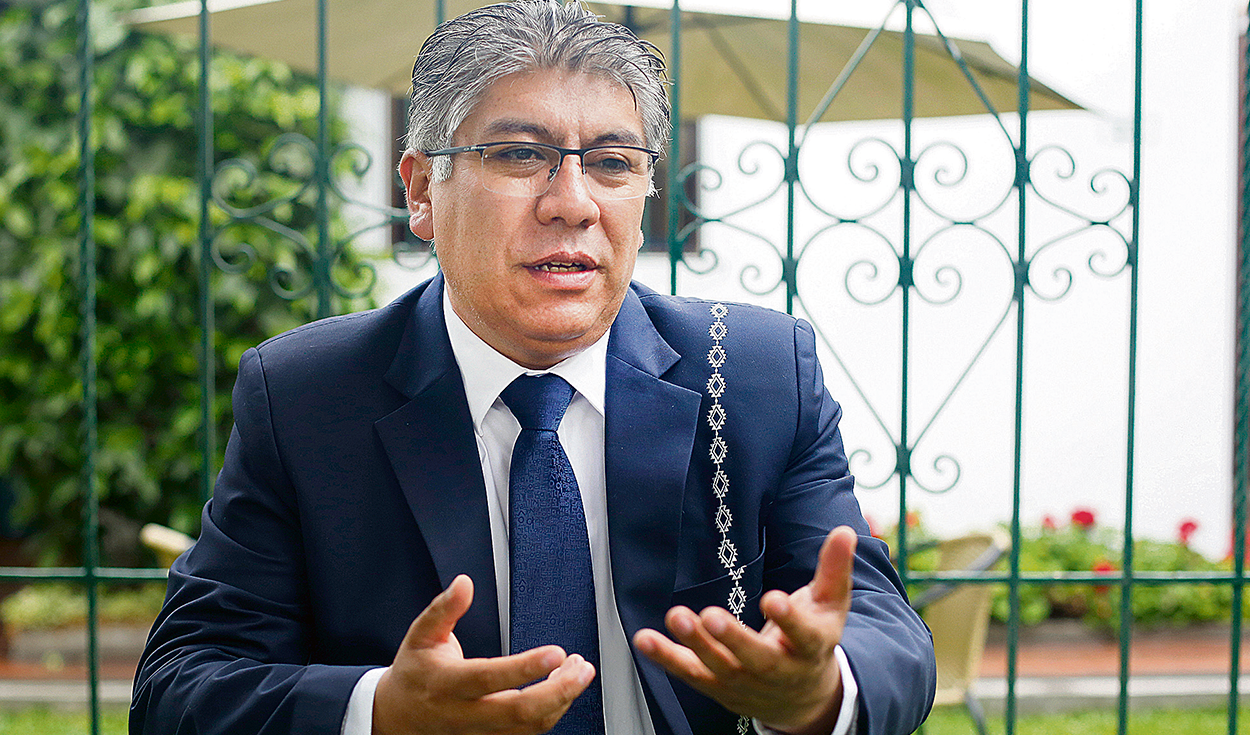
Werner Salcedowho 10 months ago assumed the governorship of the Imperial City, outlines some strategies to ensure reactivation in economic and social matters of the region. Among them are limiting train service hours to Machu Picchu and creating a single southern front for mining.
—How to understand these protests in Machu Picchu?
—When there is an authoritarian centralism, you are simply going to find distrust from the population and the last thing we want is to paralyze. Therefore, we are calling for, in this time of need, not to go on strike.
—What does GORE Cusco do?
—We are establishing dialogue tables. The recent statements by the Minister of Culture ruin a consensus process, we must explain both sides of the problem.
—Is there no solution on the horizon?
—We have determined that the problem is who transports the tourist. From 6:45 to 8:30, Peru Rail It should not transport any tourists so that, effectively, they can have the option to rest and spend the night. Once that problem was solved, we would not have the need to demand those 1,000 tickets in favor of Machu Picchu town.
—In this context, they receive a visit from CADE again.
—In Cusco, we are not only looking for the issue of reactivation to boost and preserve economic growth, despite all the problems we have had as a country and southern region in the face of this crisis caused by the pandemic and politics. Faced with this, we see with optimism that after three years CADE returns on its 61st anniversary. We provincials recognize the business efforts for decentralization, something that has been truncated.
—What does the arrival of CADE represent for the region?
That we have businessmen in Cusco again represents a lot to understand that, deep down, it is necessary to build great unity and recognize that no country in the world moved forward without the population, the State and private companies coming together.
—How is the reactivation of mining going in the region?
—We at the ANGR are promoting the creation of the commonwealth of mining and energy communities. There are fears among some governors of possible retaliation by the central government due to interests surrounding the mining sector. What we want is to help these 55 paralyzed projects that exist in Peru start producing.
—And how do you see the progress with the hydrocarbon sector?
—We see that some of the mining companies already have this social and environmental responsibility in their concessions (which we must continue to improve), but I am concerned about Camisea gas. We have given our resources with open arms to all companies like Pluspetrol and Techint, but there is no true social responsibility, on the contrary.
—What do you mean?
—We are harming ourselves. We demand and demand that in Peru there cannot be two laws: in Loreto, companies that extract oil assign 2.5% of their net profits to the communities, but there is not that same law for La Convencion, where Camisea is located. We require that it be the same for everyone and thus not have a fragmented State.
—Just as they repealed Law 31876, which limited works by direct administration.
—We had a standard from 1988 that worked very well. The Comptroller’s Office tried to corner us with S/247,500 for works. What do we build with that? Nothing. Now, they are preparing to cut off our arms again, because they have already cut off our legs. They want to make a new law of direct administration, but always limiting the State and making us see us as useless.
—And as for El Niño?
—We don’t have planning from the central government either. We are going to suffer a drought and it seems that we do not have the lessons learned. We are making efforts with the canon, something that should be for investment, and ensure that lives are saved. When we talk about drought, in Cusco we talk about the death of animals, poverty and forest fires, always devastating consequences.
Source: Larepublica
Alia is a professional author and journalist, working at 247 news agency. She writes on various topics from economy news to general interest pieces, providing readers with relevant and informative content. With years of experience, she brings a unique perspective and in-depth analysis to her work.












